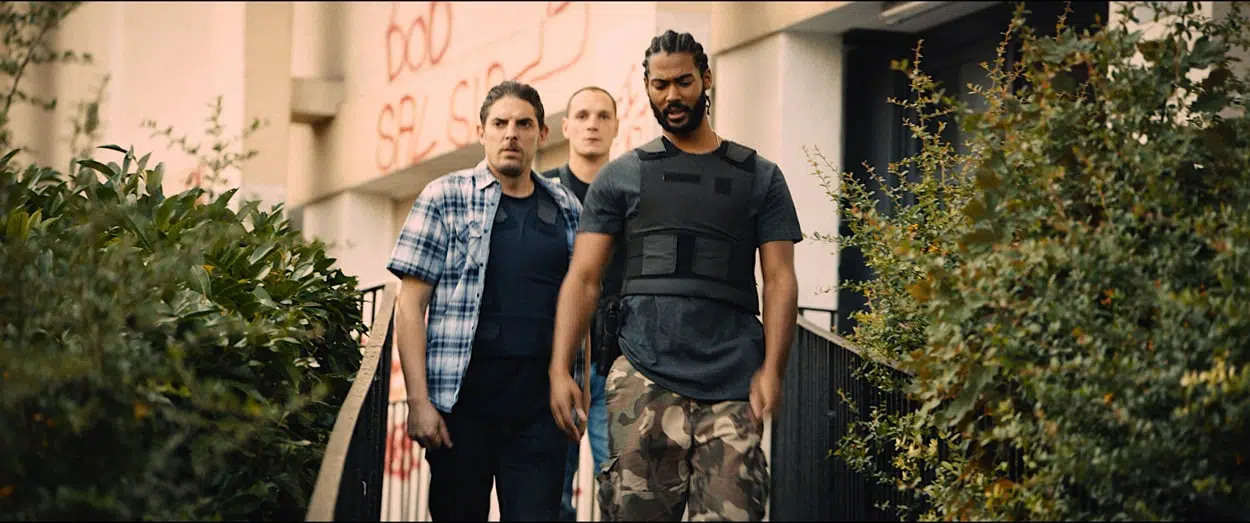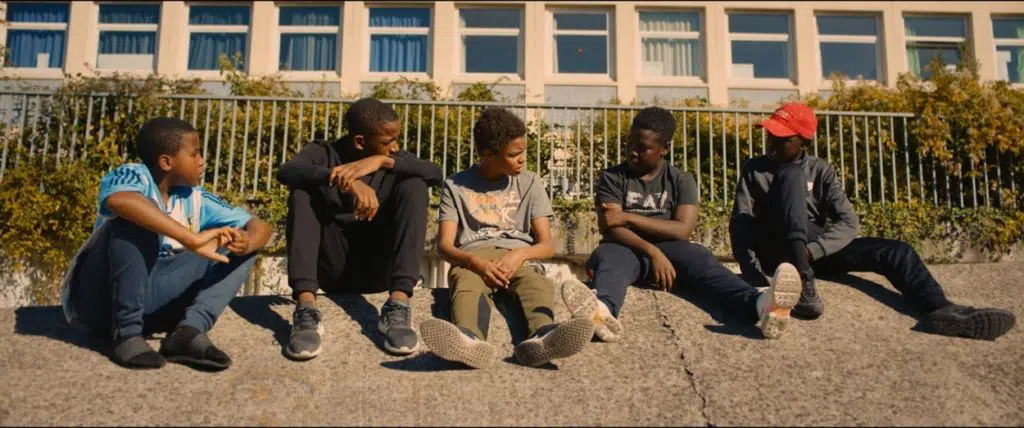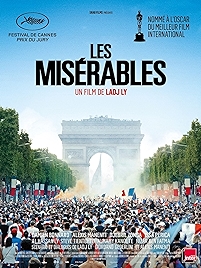The title Les Misérables is now so associated with the musical that it’s often hard to remember that it was originally a novel by Victor Hugo, and an immensely significant one at that. Surely, bearing the book, the musical and various film adaptations of both in mind, writer director Ladj Ly must have had qualms about calling his film that. But he went ahead anyway and here’s the result, a bravado piece of dramatic film-making that not only justifies Ly’s use of the title but also validates his chutzpah.
Hugo’s masterpiece often translates as The Miserables, The Wretched, The Dispossessed and The Wretched Poor, and Ly finds the modern equivalents of Hugo bread-stealing peasant Jean Valjean in the immigrant-stuffed banlieues of Paris, where he carefully opens his story with France winning the football World Cup in 2018, to scenes of wild jubilation on the streets and youths of various non-white skin colours hoisting French tricolors aloft and lustily singing the national anthem.
Patriotic credentials established, this moment of joyous togetherness is then severely tested by what follows. In a shadowing of Victor Hugo’s original plot, the action follows Issa (Issa Perica) a kid of maybe 13 or 14 who steals, not a loaf of bread, but a lion cub from a circus run by gypsies. It all kicks off, as the gypsies, determined to get their lion back, and hurling racial abuse as they go, head out into the Montfermeil neighbourhood (where Hugo wrote his novel and set much of it too).
Close by, a provincial cop Pento (Damien Bonnard) is getting a baptism of fire on his first day in a new job, learning the ropes from Chris (Alexis Mananti, who co-wrote, along with Ly and Giordano Gederlini), a streetwise cop whose racist badassery can’t, Pento reasons, be doing anything for good relations with the locals, all of whom are described by Chris in negative terms – this one’s a retired jihadist, that one’s just out of jail, all the goods on display in the local market are fake. And so on. His buddy, Gwada (Djebril Zonga), meanwhile, smiles benignly as if to say “Chris is all piss and vinegar but at bottom he’s OK.” He’s not.
Ly whirls the cops and the kid, the gypsies and the self-appointed “mayor” (Steve Tientcheu) – a gangster – together, in what almost feels like a synthesis ofTraining Day (bad cops) and La Haine (unruly burbs), adding plot twists and new developments with breathtaking speed. It’s an incident rich film, played to the hilt by all concerned – many, Issa Perica are non-actors on their first time out but you can’t tell – with the action building towards two showdowns, one between the cops and the community, the other between Pento and Chris.
It’s a film that’s said to have upset Emmanuel Macron, ostensibly because it portrays the disconnect between life in the inner city burbs and wider society. There may be another reason. Having established how French these first and second generation immigrants are, Ly isn’t at all shy about showing how French they’re not, if “Frenchness” is a commodity controlled by the likes of Macron.
The film’s power comes from the way its vision of the lives of the dispossessed is welded to its film-making style. As grievance and provocation flare erupt into open warfare on the streets, and hooded gangs launch makeshift mortar bombs against the police, Ly, DP Julien Poupard and editor Flora Volpelière rhythmically build a sense of escalating chaos, danger and loss of control, all the while attempting to keep both feet on the ground – the film is inspired by actual footage Ly shot ten years before.
There’s a difference between tough policing and unfair policing, and Ly’s major point seems to be that the one is too often confused with the other. And this leads to… a final scene in which both Issa and Pento find themselves in a Mexican standoff, with death for one or both of them looking a likely outcome.
The screen fades to black and up comes a quote from Hugo – “Remember this, my friends, there are neither bad plants nor bad men. There are only bad cultivators.” Point made, eloquently.
Les Misérables – Watch it/buy it at Amazon
I am an Amazon affiliate
© Steve Morrissey 2021


